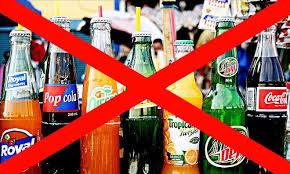Sugar related diseases are on the rise.
Everyday hundreds of companies push their addictive, attractively packed products with additives that are not beneficial to our health. One CEO of a major food company stated ‘people want flavour’ and with that thought in mind nutrition goes out the window. They use many tricks to get us to buy their products such as; no added sugar which can mean if their product normally had sugar, they just don’t add any more, that doesn’t mean it wasn’t high in sugar in the first place!
If you have a sweet tooth and love the taste of sugar it is important to note that so does cancer, diabetes and almost all diseases can be the result of a sugar craving. Not to mention what sugar does to your brain.
Is it good for me?
Just because a product sits in the ‘health’ aisle at the supermarket, doesn’t mean it’s healthy for you. Read the label and check the sugar content, then we have the problem of artificial sweeteners that can be cancer forming. Could their chosen substitute be impacting our health as well?
Anyone who has met the Gut Man, Don Chisholm, heard him speak, read his book or more recently watched his film No Reason For Disease, may have heard him say “if you truly want to improve your health, for just a single month don’t purchase anything that is in a packet” and see how you feel in as little as 30 days. Reason being is that food manufacturers who have little interest in our health blend sugar, salt and fat to create what is known as ‘the bliss point’. The bliss point is the perfect combination to have our taste buds looking for more. Could this be the reason why so many people are overweight, obese and unhealthy?
Majority of us are addicted to sugar
 The World Health Organisation states that we should consume a maximum of 6 teaspoons of sugar per day while todays children can consume up to 29 spoonfuls of refined sugar every day in just their lunchbox. In fact sugar is in almost every product you buy (canned foods, tomato sauce, fruit juice, beer and bread) and that is one of the reasons why you can be addicted to sugar without perhaps even knowing it.
The World Health Organisation states that we should consume a maximum of 6 teaspoons of sugar per day while todays children can consume up to 29 spoonfuls of refined sugar every day in just their lunchbox. In fact sugar is in almost every product you buy (canned foods, tomato sauce, fruit juice, beer and bread) and that is one of the reasons why you can be addicted to sugar without perhaps even knowing it.
Candida loves sugar!
If you have a sweet tooth most likely you have excess candida which is the precursor to irritable bowel and thrush.
Reducing sugar starves the candida and you will find your sugar cravings will diminish.
Understanding sugar
Sugar can be split into 2 components, fructose and glucose. When joined these two simple sugars create sucrose.
 Sugar is naturally found in plants and fruits and whilst sugar (fructose) can be found in FRESH fruits and vegetables our body is able to recognise this in its natural state. When we eat these whole fruits in their natural state our body is able to break this down however it is the refining process that makes sugar detrimental to our health.
Sugar is naturally found in plants and fruits and whilst sugar (fructose) can be found in FRESH fruits and vegetables our body is able to recognise this in its natural state. When we eat these whole fruits in their natural state our body is able to break this down however it is the refining process that makes sugar detrimental to our health.
Note: If large amounts of dried fruit are consumed the sugar content (fructose) is concentrated about 6 times the amount as it would be to eat the fruit fresh! 100g dried fruit = 40g sugar.
Natural sweetener options
Whilst natural is always better it may not necessarily be the better option when it comes to choosing a natural sweetener alternative. To make things easier we have compiled a list of good and bad sugar alternatives!
THE GOOD SWEETENERS*
- Monk Fruit: Monk fruit is sure becoming more popular! Derived from fruits found in the southern china and northern Thailand.
- Date Sugar: Sourced from dehydrated dates which are then ground.
- Honey: Great when used in small amounts as it is super sweet, so you do not need much.
- Molasses: Whilst this is a by-product of the sugar process, blackstrap molasses also has a range of amazing health benefits and is a great consistency for a baking sugar alternative.
- Barley Malt Syrup: Similar to molasses but has a malt, subtle sweet taste.
- Coconut Sugar: created from the sap of a coconut palm.
* Sweeteners are highly concentrated and are only to be used sparingly and in very small quantities. It is always best to consume food as naturally as possible, without adding sweetness.
THE BAD SWEETENERS
- High Fructose Corn Syrup
- Agave Nectar: Contains up to 70-90% fructose which is more than the amount found in high fructose corn syrup!
- Sucralose: Otherwise known as Splenda uses chlorine in its production process. Scientist have also found it to now be detrimental to water treatment plants as it is not able to be broken down.
- Evaporated Cane Juice: Essentially ‘table sugar’ still contains its traces of molasses after the refining process.

Whilst there may be better natural sugar alternatives out there in comparison to white sugar the best thing any of us can do is try to limit and remove as much sugar from your diet as possible and reduce any candida in the system to curb those sugar cravings.
The dangers of sugar and That Sugar Film all provide excellent material to share with friends and family.
How Sugar promotes Inflammation – a study
People who consume sugar and other carbohydrates in excess over a long period of time have an increased risk of developing an autoimmune disease. In affected patients, the immune system attacks the body’s own tissue and the consequences are, for example, chronic inflammatory bowel diseases such as Crohn’s disease and ulcerative colitis, type 1 diabetes and chronic inflammation of the thyroid gland.
Contact us at True Medicine for nutritional support and guidance as well as for effective methods of clearing candida. Call the clinic on 0468 774 633.
Source: Thanks to Nuferm for this informative article

